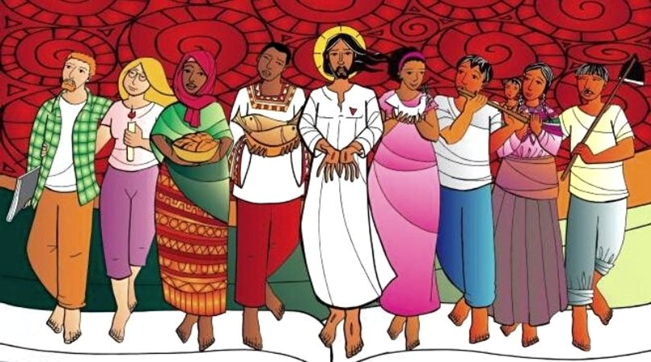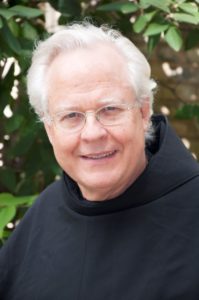 Newman as a Critic of Modernity
Newman as a Critic of Modernity
“…the field of religious thought which the duty of faith occupies
is small indeed compared with that which is open to our free
though of course to our reverent and conscientious,
speculation.”[1] Newman, Ltr. to Norfolk, 1874-75.
In October 2021, Pope Francis launched a “synodal” process in every diocese and parish throughout the Universal Church, one of collective and mutual listening, one that would culminate in Rome in October 2023. Communion, participation, and mission are three foci. Fr. James McCurry, Conventual Provincial, responds: the Franciscan charism breathes “synodality” i.e. “interlacing fraternal diversity of viewpoint with communal solidarity of vision, grounded in truth, exercised in justice, and sanctified in charity.”[2] Franciscans contribute with knowledge, investigation, imagination and conviction to align with Pope Francis’ directives about synodality.
Our new Saint John Henry Newman left a diagnosis and critique of “Liberalism” in religion which is not simply one of the features of his work, but the defining feature.[3] His diagnosis of liberalism in religion as it was unbridled in nineteenth century Christian thought was embedded in the practices and forms of life as well as increasing in religious institutions. Newman’s experience aligns with the context of Pope Francis’ call for synodality. In the twenty-first century, the knowledge of investigation elucidates faith, the fracture in the Reformation, and decomposition of faith into secular modernity. “Faith seeking understanding” counters liberalism in religion, the unraveling of historical Christianity.
One of the reasons for Newman’s going over to the Roman Church in October 1845 was his experience of the Anglican Church as infiltrated by rationalism and fear that it would be more dominant even as it was on the rise. He had many convictions which some Anglicans do not hold (the divinity of Christ, belief in the Trinity, Christ’s presence in the sacrament). On a deeper level his principles did not change. Some of his explicit beliefs as an Anglican changed, such as belief in authority. Newman realized that he had a wrong view of papal authority but the right search. Faith always held primacy over reason, but that was not a license to be stupid. The pattern for Newman was to etch and to sketch the limits of reason and how it functions.
Newman was an arguer. Religion was worth arguing about. A person cannot be Christian and relativistic at the same time. To be Christian is to have charity, absent of violence and fanaticism by remembering what charity is. The Franciscan intellectual tradition is in step with Newman the arguer. When Newman became Catholic, he knew very little about the medieval tradition which includes Anselm, Thomas Aquinas, Bonaventure, and Duns Scotus. Studying the medieval tradition had been vacuumed out by the English trajectory of the Reformation. The Anglican Divines (Andrewes, Hooker, Bull, J. Taylor) in the 1600’s gave him the genealogy that he needed for evidence and continuity with his patristic convictions.
“Newman as a Volcanic Eruption”[4] emphasizes wisdom and courage. His Letter to Norfolk (1874) answers the Prime Minister W. E. Gladstone’s criticism that the Catholic Church uses “rusty tools.” Different historical circumstances interlock with Pope Francis’ portal on synodality. A lifelong arguer, an interpreter of modernity, Newman is a Christian sniper.
Newman seems to have interpreted Gladstone’s “rusty tools” as more of a service than a disservice to the Roman Church. Little known is Gladstone’s meeting with Pope Pius IX on 22 October 1866 to discuss political crises of mutual interest which I think confirms Newman’s intuitions. Synodality would hardly have gained traction, but, since Vatican II, Newman’s Council, synodality has new energy. McCurry reminds us that synodality recognizes that all the baptized participate collegially in the life and evangelizing mission of the Church.
Newman was fairly confident that “liberalism” would not prevail over the Catholic Church. His measure of historical Christianity provides a more developed picture of liberalism’s basic tenets, and its underlying principles. As an Anglican, in 1835 he denounced liberalism in sermons on the Antichrist, a decade before his interpretive historiographic “edged tools” in The Development of Christian Doctrine. Antichrist is figured in the mode of the lie, not the mode of persecution, and soon after is in Tract 83. Newman moved from the Anglican communion to Rome as he reflected on details that needed change, not essentials. Liberal Christianity was nothing less than a disaster and had already happened even if it was not fully recognized. Disaster applies to a world completely unhinged, left without a sense of transcendence.
Our post-Christian culture is assailed from without and hollowed out from within. Newman does not use the term but it aligns with “Liberalism” as the defining feature of his work. From Francis of Assisi who envisioned brothers journeying together as pilgrims, to Vatican II, Lumen Gentium, the pilgrim Church unites with and will attain its full perfection only in the glory of heaven when the human race and entire world will be perfectly reestablished in Christ.
In a sermon shortly after going over to Rome, Newman refers to the world in a Pauline sense as a theater where all are on a stage on an equality with each other as they assume difference of character. “Now we are all but actors in this world; we are one and all equal, we will be judged as equals as soon as life is over; yet, equal and similar in ourselves, each has his special part at present, each has his work, each has his mission, …to do what God puts on him (and her) to do.”[5] The theater, stage, equality of actors…. What an image for synodality!
Fr. Edward J. Ondrako, OFM Conv. Univ. of Notre Dame, Easter Reflections
___________________________________________
[1] J. H. Newman, Letter to the Duke of Norfolk, 1874-1875 (London: (uniform edition), 346.
[2] J. McCurry, “Conventual Synodality” – A Communal Interlace,” 7 April 2022.
[3] C. O’Regan, “Newman and Anti-Liberalism” (Sacred Heart Review: 1991-1992), 63-88.
[4] See Our Lady of Angels Province website (olaprovince.org. Entries for 22 Jan. Respect Life; 2 Feb. Purification; 21 Feb. Newman’s Birthday; Ash Wednesday; 25 Mar. Annunciation 2022).
[5] J.H.Newman, “God’s Will and the End of Life,” Disc. to Mixed Cong.(London: uniform edition), 112.
Fr. Edward J. Ondrako, OFM Conventual
Research Fellow Pontifical Faculty of St. Bonaventure, Rome
Visiting Scholar, McGrath Institute for Church Life
University of Notre Dame
Easter Monday ~ April 18, 2022
